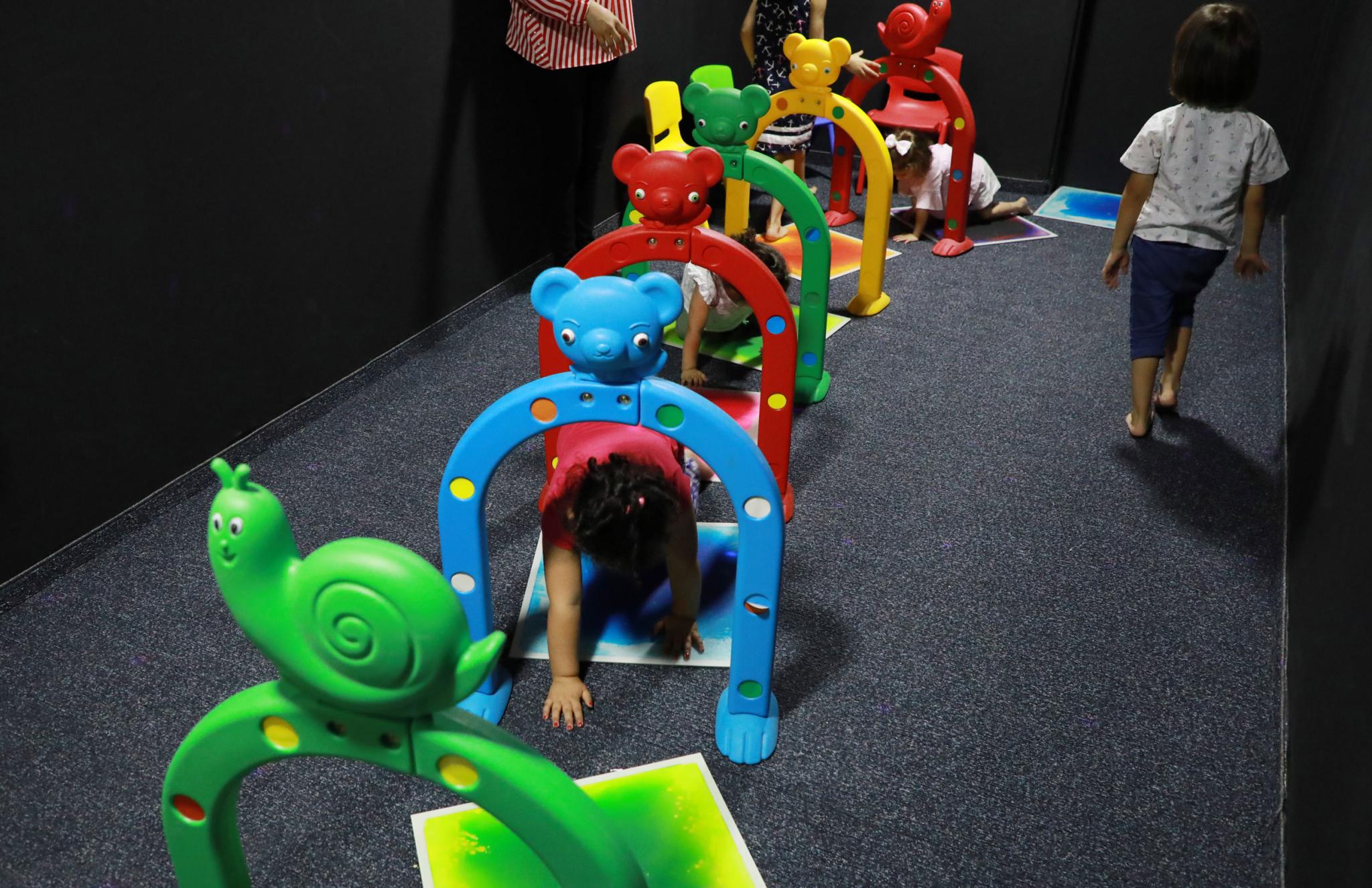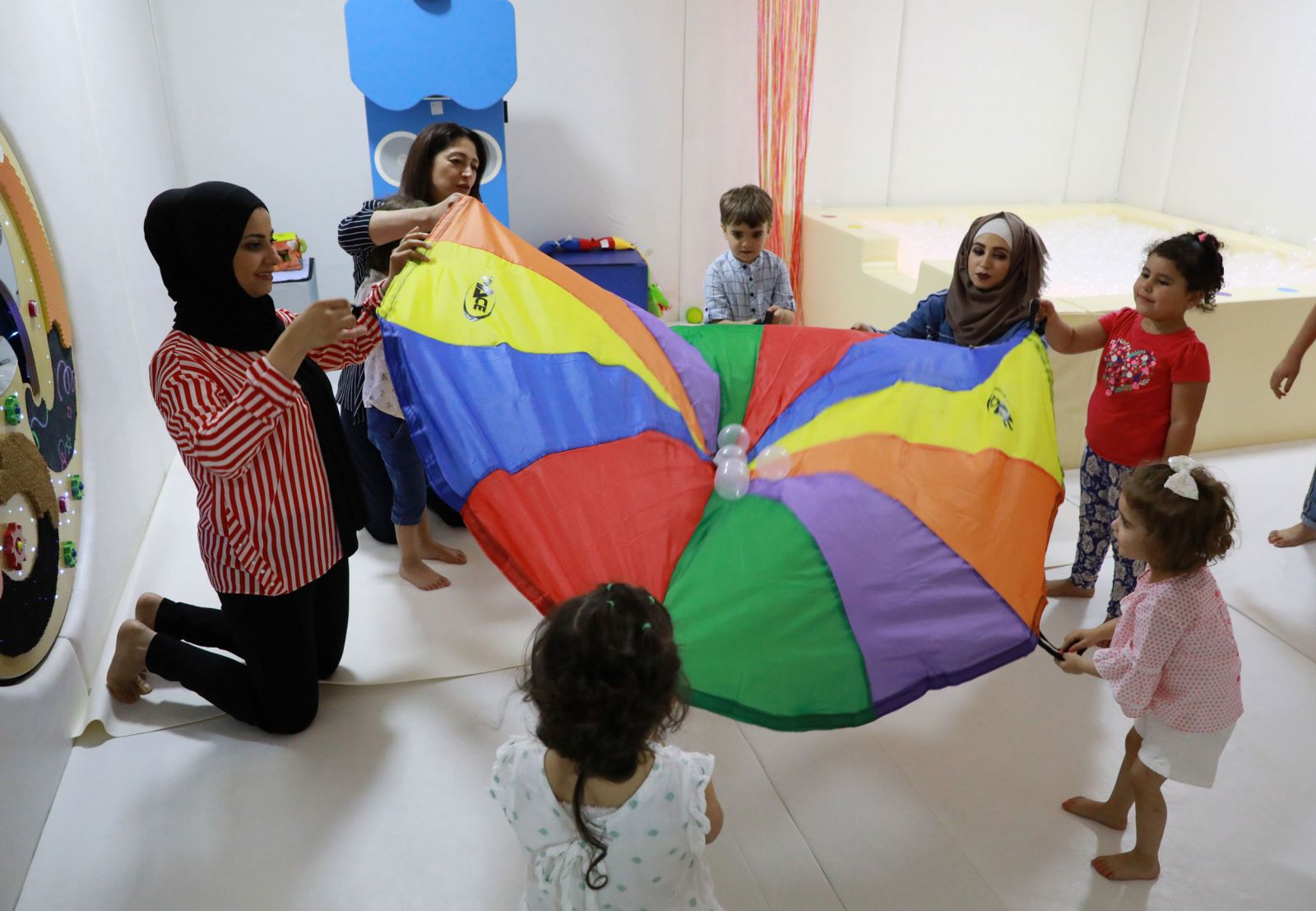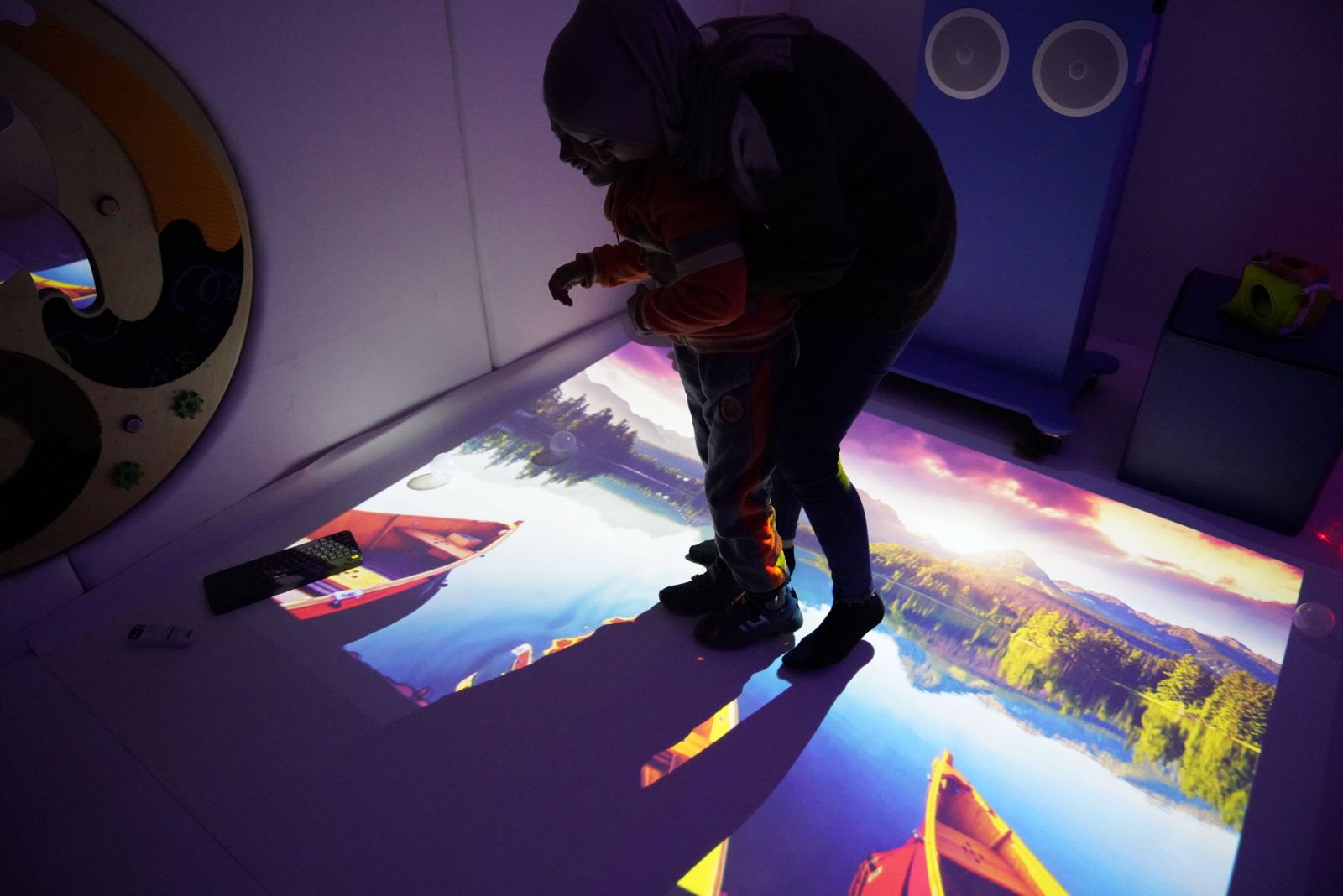
Sensory processing disorder : Sensory processing disorder is a condition where the brain is unable to process or respond to the information it receives form the five senses, and thus experiences a dysfunction in the relationship between human behavior and the brain.
The sensory system is responsible for sight, hearing, taste, smell, and touch in the body, in which the brain creates an image of these senses in order for the body to respond in a specific behavior to what’s happening around it at the right time, thus creating a correlation between the workings of the brain and human behavior called “sensory processing.”.

Treatment of sensory processing disorder requires providing the sensory unit with specific equipment:
- Sensory Unit is designed with tools and equipment that stimulate all five senses, such as seats made from relaxing the material.
- Plastic pipes filled with colored air bubble strongly lit fiber optic cables, as well as tools that project moving lights with special effects on walls and roofs used to stimulate the sight sense.
- Equipment that releases pleasant smells and perfumes used for relaxation and to stimulate the smell sense.
- Toys and equipment that produce special sounds and music when switched on or moved in a certain manner used to stimulate the hearing sense.
- Toys designed differently in terms of touch and temperature used to stimulate the touch sense. Some sensory units contain toys with certain flavors used to stimulate the taste sense.

The sensory unit treats the following symptoms ( Sensory processing disorder ) :
- Attentional and concentration problems.
- Tear up and move my eyes away from the sun and bright lights.
- Suffer weakness in fine motor skills such as writing.
- The child easily irritated from loud noises.
- Chew on everything.
- Always smell people, foods, and objects.
- Have difficulty putting on clothes by himself.
- I always sit in a W position.
- I wear my socks at all times and never walk barefoot.
- I tip toe whenever I walk.
- Suffer a weakness in grass motor skills, such as running and riding the bicycle.
- Do not enjoy tickling or hugging.
- Do not eat all foods, particularly newer kinds.
- Hearing is selective.
- Tend to have poor touch/pain senses; I either touch people gently or aggressively.
- The child is getting irritated when cutting, washing, or combing my hair.






